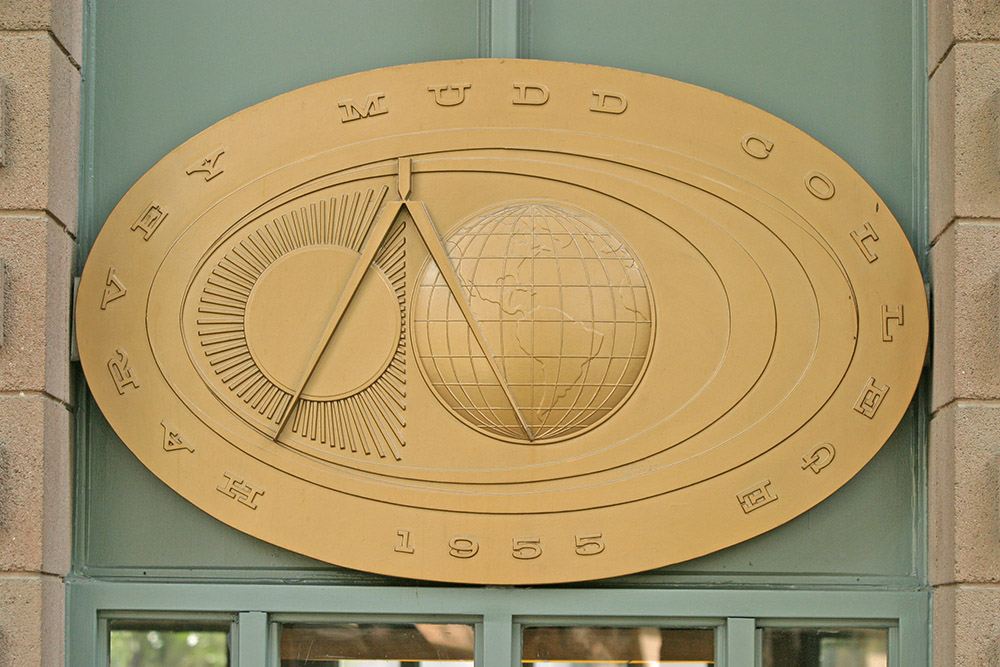Harvey Mudd Presents 2020 Clinic Milestone Awards
May 22, 2020
Six organizations are being honored by Harvey Mudd College for participating in its Clinic Program and for investing in its students and the future of science, technology, engineering and mathematics.
Honorees Meggitt Control Systems, Niagara Bottling LLC, Google Inc, MIT Lincoln Laboratory (MITLL), Steelcase Inc. and Webroot Inc. are sponsors of the Clinic Program, an internationally recognized hallmark of Harvey Mudd College that engages juniors and seniors in the solution of real-world, technical problems for industrial clients. Each year, more than 40 organizations work with nearly 250 students to develop solutions to business challenges and push forward the industry standard in research and development or build a working prototype. The business value of the Clinic outcomes often leads sponsors to return.
The College celebrates returning Clinic sponsors with the Milestone Award.
Ten Clinic Projects
Meggitt Control Systems is a world leader in the development, production and installation of a wide array of aerospace products and services. Meggitt achieved the 10-project milestone with the addition of two Engineering Clinic projects during 2019–2020. Its Engine Systems division asked students to develop more efficient electro-mechanical components, and its Fire & Safety division tasked a student team with researching novel sensing techniques for aircraft smoke detectors.
Niagara Bottling, family-owned and operated since 1963, is headquartered in Diamond Bar, California, and operates bottling facilities throughout the U.S. and Mexico. Now at 11 Clinic projects, Niagara has provided students with a diverse range of problems, including those related to sustainability. This academic year, their Engineering Clinic projects dealt with bottle design optimization and a real-time energy visualization dashboard for one of their manufacturing plants.
Five Clinic Projects
Google Inc., which just completed its eighth Clinic project, is a multi-national technology corporation whose mission is to organize the world’s information and make it universally accessible and useful. Among its 2019–2020 Computer Science Clinics are two projects for Google Education and two for Google Irvine. “The Clinic Program benefits Google by providing access to new perspectives on old problems while reinforcing ties between Google and the students and faculty at Harvey Mudd,” says Titus Winters ’02, senior staff software engineer.
MIT Lincoln Laboratory (MITLL) is a United States Department of Defense federally funded research and development center chartered to apply advanced technology to problems of national security. Its RACECAR summer program is designed to promote the accessibility of STEM education through hands-on outreach projects. A Computer Science Clinic team built upon last year’s MITLL Clinic by designing a new, more accessible curriculum and platform to expand the reach and scale of the RACECAR program. The team developed a novel small-scale, autonomous vehicle design, extensible software infrastructure and associated curriculum with supporting materials, and then taught its curriculum to Harvey Mudd classmates and high school students.
Steelcase Inc., the largest office furniture manufacturer in the world, is a United States-based furniture company that produces office furniture, architectural and technology products for office environments and the education, health care and retail industries. In an effort to refine its production consistency, the 2019–2020 Computer Science Clinic team worked on improving communication among Steelcase employees and with customers. They created a database of veneer imagery and extracted salient features from these images using image processing techniques.
Webroot Inc., an OpenText company, was the first to harness the cloud and artificial intelligence to stop zero-day threats in real time. Webroot secures businesses and individuals worldwide with threat intelligence and protection for endpoints and networks, making cyber resilience simple, reliable and accessible. Thus far, Webroot has hosted five Clinics with Harvey Mudd and works with students to improve the efficacy of its cybersecurity solutions via automation and machine learning. The 2019–2020 Computer Science Clinic centered on developing a “fingerprint” for a web page that could be tracked over time to detect malicious tampering. The student team worked through the broader security gap that HTTPS can create and helped illuminate the need for a solution.
Hal Lonas, CTO of SMB and Consumer, OpenText, says Harvey Mudd Clinic projects are invaluable sources of novel designs and even open up the minds of in-house software engineering teams. “The students build something amazing, then the Webroot teams take it apart, put it back together and integrate it into our production services. The creativity, technical skills and innovative mindset the Harvey Mudd students bring to the Clinics is incredible to witness. It’s been an honor to work with the teams over the years to find new ways of solving real cybersecurity issues.”
____________________
Under the guidance of a faculty advisor and a company liaison, students work in teams of four or five to develop solutions to unsolved problems presented by sponsoring organizations. Applying their learning in creative ways, HMC students then present their solutions. Companies retain all intellectual property rights that arise out of the project, and it is not uncommon for HMC students to be named on patents.
During the 2019–2020 academic year, students undertook 56 Clinic projects related to engineering, computer science, mathematics and physics. Several projects also have a social justice or international (Global Clinic) focus. Since 1963, Harvey Mudd students have tackled challenging problems in nearly 1,700 Clinic projects for more than 500 clients, many of them Fortune 1000 companies.
Founded as an innovation in engineering education in 1963, Clinic has been expanded to other HMC academic departments and copied by institutions worldwide. The National Academy of Engineering recognized the program and three HMC faculty members—Clive L. Dym, M. Mack Gilkeson and J. Richard Phillips—with the 2012 Bernard M. Gordon Prize for Innovation in Engineering and Technology Education “for creating and disseminating innovations in undergraduate engineering design education to develop engineering leaders.”
